As the old adage goes, the only things certain in life are death and taxes. Taxes, it seems, has always been with us and can be found as far back as Biblical times. It could be argued that the American Revolution began, in part, because of British taxation of American goods (think Boston Tea Party.)
In 1861, Abraham Lincoln introduced a flat 3% federal tax on incomes over $800, in part to help pay for the Civil War. Congress, in 1872, abolished that tax; but the concept never really faded and was promoted to various degrees throughout the remainder of the 19th century.
Finally, in 1909, Congress passed the 16th Amendment (ratified by the states in 1913) that gave Congress the power to levy federal taxes. Still, due to generous federal exemptions and deductions, less than 1% of the population paid taxes in 1913 (at an enviable rate of 1% net income.)

Fast forward to the 21st century, and the simplicity of the early taxes seems quaint compared to the current expansive web of U.S. Federal Tax Codes. There are three types of taxes: on what you earn, what you buy, and what you own. Today, the U.S. has nine, overall categories of taxes:
Sales
Value-Added
Property
Personal
Capital Gains
Inheritance/Estate
Payroll
Travel
There are also the so-called “sin taxes,” levied on cigarettes, alcohol, gambling, and drugs and candies.
Colleges and universities offer accredited Masters’s degrees in taxation studies online. College Consensus looked at the field and identified some of the available MS and MA graduate programs, along with other factors that may help you decide on a path that’s right for you.
Is a Master’s in Taxation Worth It?
Holding a master’s degree in taxation will help you be a more attractive candidate to employers, and a graduate degree can substantially increase your job opportunities along with your potential salary. The MS in Taxation (MST) will provide you with a greater understanding of federal and state tax codes and regulations as they affect individuals, corporations, and partnerships.
Because of the complexity and categories of tax codes, if there’s one career with a bright future, it’s probably for those professionals with tax law expertise who walk corporations, small businesses, and individuals through the minefields that are the U.S. and state tax codes. It’s an understatement to say that tax codes are confusing and beyond the comfort level of most Americans, which is why, perhaps, tax advice and preparation services are an $11.6 bn industry.
The U.S. Treasury reported the federal government collected $4.90 trillion in 2022 and processed 261.0 million Federal tax returns and supplemental documents. For the year 2022, the National Association of State Boards of Accountancy reported there were approximately 669,000 actively licensed CPAs in the U.S. and an estimated 56,384 tax preparers. Meaning that about half of the accountants in the United States are trained and licensed CPAs.
That’s an overwhelming number of federal returns, with over 60% of the filings being prepared by a professional tax accountant, CPA, or tax preparer. Additionally, forty-one states levy a personal income tax (the highest is California at 13.3%.)
Even though around 40% of Americans do their own taxes using online tax preparation services, ONet Online (an occupational information site) estimates that tax preparer positions in 2022 will grow by nearly 14 percent, and the U.S. Bureau of Labor Statistics projects a growth of 13 percent. Both projections are estimated to be much faster than average careers.
You may be familiar with the top 10 U.S. and global tax preparation companies (in no particular order):
| Company | # of Employees | Estimated Revenue |
| H & R Block | 90,700 | $3.01 billion |
| Deloitte* | 312,000 | $46.2 billion |
| Ernst & Young* | 270,000 | $36.4 billion |
| KPMG* | 219,281 | $29.75 billion |
| RSM (US) | 43,000 | $5.74 billion |
| PricewaterhouseCoopers* | 276,000 | $42.4 billion |
| Ryan LLC | 43,000 | $5.74 billion |
| BDO USA | 7,330 | $1.64 billion |
| Jackson Hewitt | 22,000 | $213.8 million |
| Franchise Group, Inc (Formerly Liberty Tax Service) | 9,119 | $2.4 billion |
How Much Can You Earn?
The earning power of an MST can be significant. To consider your ROI, consider that in 2019-20, the NCES estimated the average tuition cost at a public college or university was $24,820 for two years and $56,860 for a private school. Estimates indicate online degree programs can average about $10,000 less than attending on-campus.
The Bureau of Labor Statistics publishes that Accountants and Auditors with at least a bachelor’s degree earned an average annual salary of $77,250. According to PayScale.com, an MST can substantially increase your earning potential and estimates a mean national average of around $90k, and ZipRecruiter estimates $85k.
These estimates can and do, change depending on your position and experience. Typical job titles include tax and senior tax manager, tax accountant, tax director, CPA, etc.
| CPA | $70,896** |
| Tax Managers | $99,300** |
| Senior Tax Managers | $131,200** |
| Tax and Senior Accountants | $57,930-$73,150** |
| Tax Directors | $153,700** |
| Tax Preparer | $51,080* |
**Bureau of Labor Statistics
Remember, these estimates don’t include benefits and other compensation such as paid leave, retirement plans, healthcare insurance, child care, moving, transportation, etc.
Should You Earn An Online Degree?
Chances are, you’re an employed professional with a bachelor’s degree, and you want to earn an advanced degree but have little time or ability to attend in-person classes. Online degree programs cater to busy professionals, offering the same coursework that on-campus students receive and that are taught by the same faculty.
Earning your degree online can also help you save on the overall cost and time if you consider you won’t be paying additional funds for travel, housing, or food. You’ll also be able to continue to work, and your work-life balance won’t be disrupted.
One typical question about online degrees concerns whether the diploma will state the degree was earned online. Students are worried employers will be turned off by that designation. You can relax since that’s no longer the case. Online degree programs, as well as colleges and universities, are eligible for accreditation and diplomas match the ones awarded for on-line attendance.
What Courses Will You Take for an MST?
It takes approximately 30-36 credit hours to complete most MST degrees, with many programs being completed in 12-18 months, depending on full or part-time status.
Contingent on your undergraduate transcript, you might be required to take prerequisite courses in topics such as accounting principles, introduction to taxation, business finance, economics, business law, etc. You’ll want to talk with the program director or an admissions counselor to ask these questions before committing to a program.
Examples of classes in an MST curriculum might include:
| Tax Research and Writing | Federal Income Tax Procedures |
| Business and Tax Law | Financial Procedures |
| Tax Accounting Method | Business Ethics |
| Critical Thinking Skills | Business Communications |
| Bankruptcy | Retirement, Estate, and Personal Planning Tax Issues |
Capstone projects are frequently used in lieu of a graduate thesis. You may also need to complete a capstone project focusing on a real-world tax issue and provide possible solutions. You’ll probably have several elective courses from which to choose specialty topics such as estate and gift taxes, partnerships, corporate taxes, international tax laws, etc.
Some programs might offer an internship in an accounting firm, CPA office, or tax corporation that will provide you with experience working with professionals in the field and offer useful experiences. These internships can be supervised and conducted in your home community or perhaps where you work.
While you’ll complete your coursework primarily online, some programs may have brief residencies requiring you to attend on-campus sessions where you’ll meet with faculty and other students. These residencies are usually held on the weekends and dates are known well ahead of time.
Certification/Licensure/Credentials
The IRS identifies two types of tax preparers who hold a Preparer Tax Identification Number (PTIN):
| Unlimited Representation Rights | Enrolled Agents (IRS licensed) Certified Public Accountants (Licensed by state boards) Attorneys (Licensed by state courts) |
| Limited Representation Rights | Annual Filing Season Program Participants (Volunteer) PTIN Holders (Can file taxes but can’t represent clients) |
The IRS publishes a national directory of the credentials and qualifications of tax preparers with a Preparer Tax Identification Number (PTIN). This searchable directory cites an individual’s education, experience, and skills.
The American Institute of Certified Public Accountants (AICPA), the National Association of State Boards of Accountancy (NASBA), and the Federation of Schools of Accountancy (FSA) support a certification exam for CPAs in virtually every state.
If your goal is to work in taxation with unlimited representation rights, be sure your program will prepare you to sit for the CPA exam.
Certification
Certificate programs are 6-12 hour programs that are beneficial for law, business, and accounting master students interested in tax law and theory. You may find online certificate programs that will meet your particular needs. Taught by experienced faculty knowledgeable in changes in tax law and procedures, these programs are helpful for students who may not have a strong accounting background.
Certificates are also a great way to prepare you to be an IRS Enrolled Agent, PTIN Holder, or Annual Filing Season Program Participant. Taxation certificates can also help advance your career and increase your earning potential and demonstrate a commitment to the profession.
You may find taxation certification programs with special emphasis on areas like tax planning, the legal system, corporate tax, international tax, wealth transfer, business analytics, etc. Several schools offering certificates have online programs.
Licensure
Certified Public Accountants
CPAs are required to hold a license. To earn a license, you need to hold an undergraduate and/or graduate degree, preferably in accounting or business. You’ll also need to pass the four-part Uniform CPA Examination ®, which is comprised of a four-part test of four-hours for each part.
The exam is administered by The Association of International Certified Professional Accountants (aka the ” Association”) and The Chartered Institute of Management Accountants (CIMA.)
This gets a little complicated. While you don’t need a license, per se, to practice as a tax preparer. There are seven states that are the exception (California, Illinois, Connecticut, Oregon, New York, Nevada, and Maryland.) Many of these states will waive the PTIN requirement if you’re a CPA or other accounting professional.
Some states may refer to requirements as a “license,” but the process is nearly identical to the PTIN of the IRS. PTINs are relatively simple to obtain from the IRS, requiring an application, personal information, previous tax returns, a fee, etc.
Accreditation
Degree accreditation is your guarantee that a taxation graduate curriculum meets specific standards for career professionals and can lead to certification and licensure. Accreditation is especially important in a professional online graduate degree.
Be sure to look for either (or both) institutional or program accreditation. Programmatic accreditation is awarded by an industry’s professional organizations that look to see if the degree program will prepare students to enter a specific field. Institutions should hold regional accreditation.
Taxation-specific programs may hold Association to Advance Collegiate Schools of Business (AACSB) accreditation for their Master’s in Taxation degrees.
Department of Education or Council for Higher Education Accreditation (CHEA) provides approval for regional accrediting agencies like the Middle States Commission on Higher Education (MSCHE), Higher Learning Commission (HLC), and Southern Association of Colleges and Schools Commission on Colleges (SACSCOC). This is your guarantee the institution is qualified to award online degrees.
Admissions
To be considered for graduate admission, you’ll need to submit an online application (usually with an application fee), provide academic transcripts, demonstrate a certain UG GPA (typically a 3.0 minimum), letters of recommendation, a statement of purpose, resume or curriculum vitae, and the Free Application for Federal Student Aid (FAFSA®).
An undergraduate degree from an accredited program will be considered for admission to a graduate program, but you don’t necessarily need a bachelor’s in accounting, finance, or business. You can have a degree in an unrelated field and still qualify for admission to a graduate program.
During the Covid-19 pandemic numerous colleges and universities waived requirements for the GRE/GMAT test scores, and there is a trend to move away from these tests, but check with your admission office to be certain you won’t need to submit test scores.
You’ll also want to be aware that university graduate admission deadlines may not be the same deadlines as your taxation program. Talk with the program director to be sure you know the deadline for application as well as the university admission deadline.
Financial Assistance
You may not qualify, but then again, you might. Whichever may be the case, you’ll want to be sure to file the Free Application for Federal Student Aid (FAFSA®). If you’re financially eligible, you could receive federal student loans based on the FAFSA® calculations.
If you don’t want to take out loans, you should also be aware that some graduate programs will use the FAFSA® to determine your eligibility for need-based grants, industry-specific funds, or scholarships. Talk with the program director, admissions or financial aid officers to see what funds may be available.
Be certain t to check with your Human Resources Department to see if your company offers tuition assistance or tuition reimbursement as part of your overall benefits package. Companies realize that educational support is a key part of employee satisfaction, advancement, and retention, so it’s worth it to see if you may qualify for educational benefits. Benefits could cover tuition, books, fees, or other charges.
Ten Online Master’s in Taxation
College Consensus, to help you get started in your search, identified ten online Master in Taxation programs that may help you find the right program for you. This is not a comprehensive list of online graduate programs in taxation by any means.
We chose these schools because they’re quality programs and to give you examples of accredited, online Master in Taxation degree curricula, program length, faculty experience, tuition and fees, and specializations. Programs can be 100% online or hybrid in design which may require brief on-campus attendance or residency weekends.
Bentley University

This online Master of Science in Taxation (MST) from Bentley University is regularly recognized by national ranking services as one of the best in the field. The degree is comprised of 5 core and five elective courses that concentrate on practice and critical thinking skills. You’ll be taught by a faculty of business heavy-hitters with experiences as Vice Presidents in corporate taxation as well as the “Big Four” accounting firms. This curriculum will help you work toward the licensing requirements for CPA in many states.
DePaul University
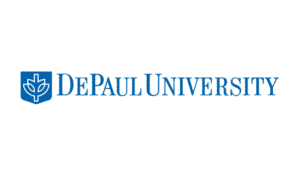
DePaul University, through its Kellstadt Graduate School of Business, has a well-respected online MS in Taxation (MSTAX) offered in small classes and delivered by an expert faculty. One of the first programs of its kind, the MSTAX requires 46 quarter hours and includes core classes in domestic and international tax concerns in research, procedures, and current tax issues. The school has a robust roster of electives, and DePaul’s Chicago location provides access to some of the top accounting firms in the country.
Fairleigh Dickinson University

New Jersey’s Fairleigh Dickinson University’s Silberman College of Business is considered one of Princeton Review’s Best Business Schools, making its Taxation MS online degree a good choice. This is a practice-oriented program taught by seasoned faculty in the field and provided synchronously 100% online using Zoom. The curriculum requires 30 credit hours and has prerequisite requirements. You can start this AACSB International accredited program at any time, depending on the program’s class schedule. Don’t worry, there are no classes during tax season.
PennState World Campus

PennState has over 125 years of distance education experience, and you can be assured the Smeal College of Business Master’s in Taxation 30-credit hour degree is one of the best around. This flexible program offers a solid curriculum you can complete in as few as 21 months, attending part-time. Depending on your elective courses, this program will help you earn the 9-12 credit Graduate Certificate in Business Analytics, Graduate Certificate in Taxation, and Graduate Certificate in Accounting Foundations, typically without taking additional coursework.
Portland State University
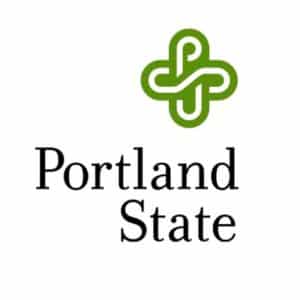
If you attend this online, 33-credit hour curriculum MS of Taxation full-time, you can complete your degree in 12 months (24 months, part-time). Portland State University’s accredited taxation program provides a convenient schedule, career preparedness, and an expert faculty. PSU is proud of its ranking as one of U.S. News and World Report’s best online business programs. The curriculum focuses on teaching technical tax knowledge, business-specific communications, tax research, and critical thinking skills.
Rutgers University
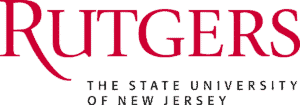
Rutgers University, the state university of New Jersey, provides an online/hybrid Master of Accountancy in Taxation. This degree is offered part-time and is a great option for working professionals. Flexible, the technology used for this program allows you to participate in live-streamed classes or off-site. You will, however, need to travel to the campus for exams. This program’s curriculum also satisfies the requirements for you to sit for the CPA exam. Among the topics, you’ll study are ethics, federal income tax, tax-exempt entities, etc.
Southern New Hampshire University
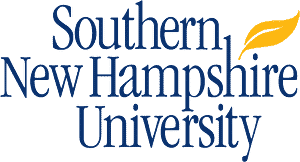
You’ll earn a Master’s in Accounting with a concentration in Taxation from SNHU with one of the least expensive tuition we’ve found. The school will accept up to 12 graduate transfer credit hours towards this 36-credit hour curriculum. Classes include studies in corporate financial management, advanced auditing, business law, federal income tax, corporations, etc. The taxation concentration will train you in tax research, estate, and gift taxation and requires a capstone project in accounting. SNHU was one of the first schools in the country to provide online studies and has grown to an impressive 135,000 students and 250 programs which is an example of its popularity.
University of Baltimore

This is a joint Master of Science in Taxation program between UB’s Merrick School of Business and the University of Baltimore School of Law that began in 1987. This is a 30-credit hour degree that includes foundational accounting courses along with taxation and elective classes. The MST will provide you with a sound understanding of federal tax policies and procedures as well as essential skills in bankruptcy, real estate taxation, pension, estate, personal planning, etc. The degree satisfies the requirements for a CPA license in Maryland. You may want to see if that applies to the state in which you live.
University of Cincinnati
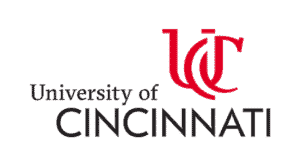
This Ohio school may have the perfect MS in Taxation degree for you as a business professional. You’ll gain knowledge in special topics, individual and corporate taxation, federal process and procedure, estate and gift tax regulations, and state and local taxation principles. You can attend full-time or part-time and complete this 100% online, 30-credit hour curriculum in 12 months or so. GMAT scores aren’t required for admission, and you can choose from multiple start dates. This MST is taught by a nationally ranked faculty who have professional expertise as lawyers, CPAs, and Fortune 500 professionals, as well as international tax experts.
University of Minnesota

The Carlson School of Management is proud that its online Master of Business Taxation (MBT) is one of the nation’s top graduate tax programs. Taught by its renowned faculty who have real-world experience, this is a 100% online graduate program. The flexibility of the foundational coursework (classes break during tax season) is underscored by a strong slate of electives. You’ll be able to choose from topics in taxation of fiduciaries, taxation negotiation techniques, wealth transfer, and more. The $1,428 tuition is the same regardless of your state of residency. To help you decide, be sure to take advantage of the school’s virtual information sessions for the MBT.
Related:
